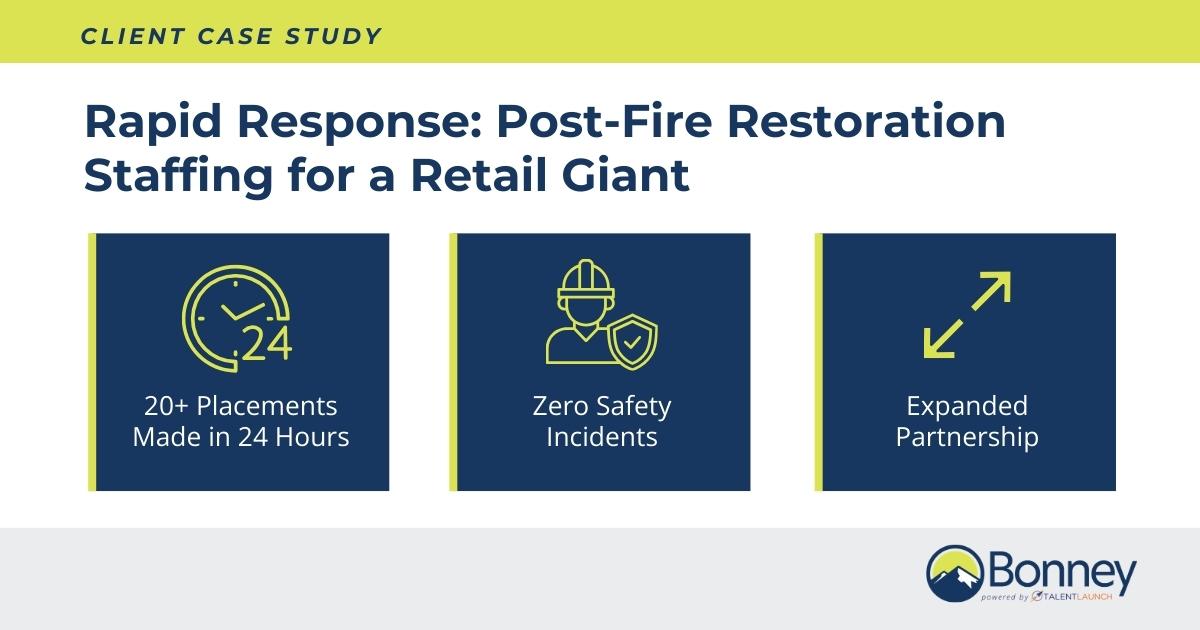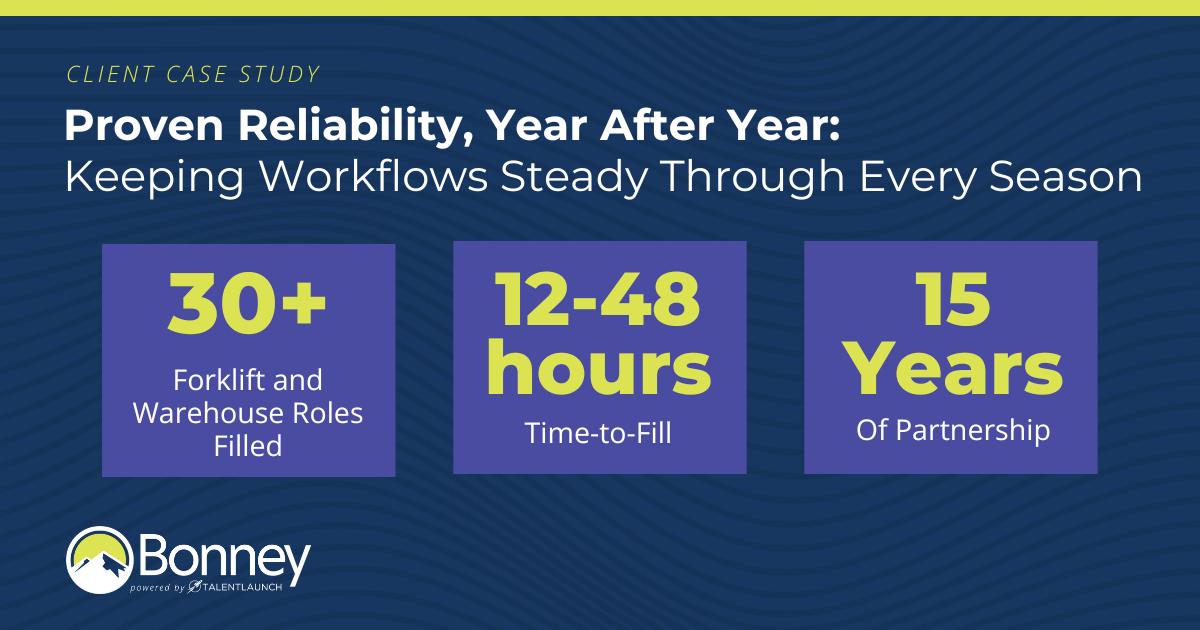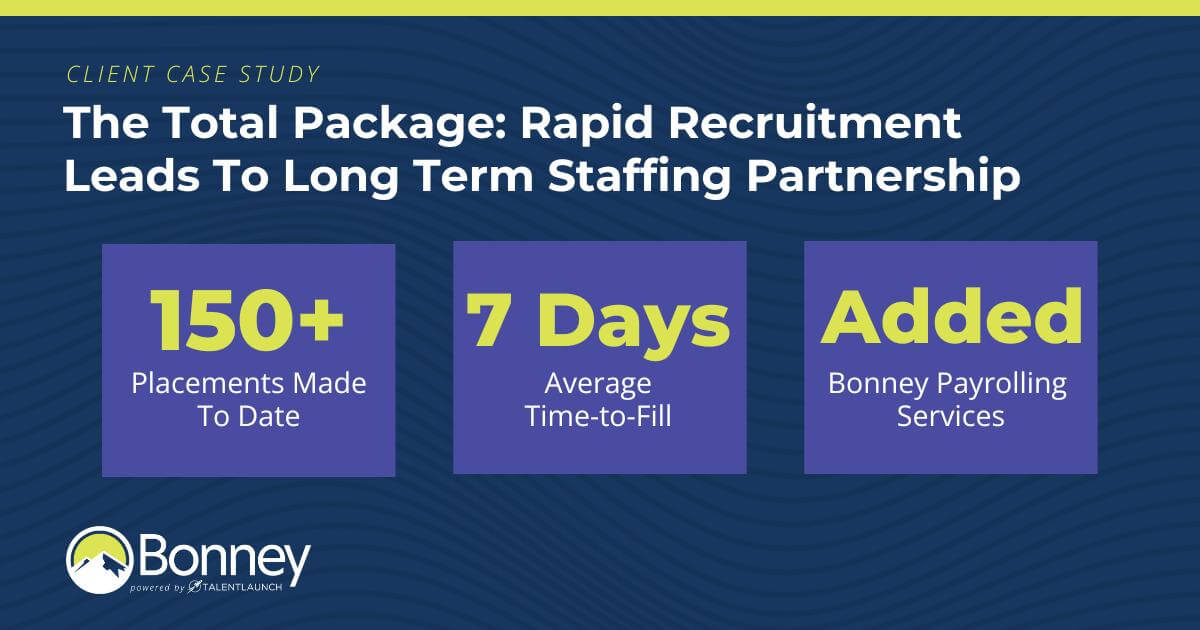According to Glassdoor, the average company in the United States spends about $4,000 to hire a new employee. If your HR team is small or already stretched thin with their responsibilities, this cost can be particularly burdensome. And in a competitive job market, finding efficient and cost-effective hiring solutions is more critical than ever.
One often overlooked solution is payrolling services.
Think of payroll servicing’s motto as “Your Employee. Our Payroll.”
This service allows you to add a contract associate of your choice to a third party’s payroll, letting that party handle all administrative details.
By leveraging payrolling, your company can streamline its hiring process, reduce administrative burdens, and focus on core business functions. The service provider manages payroll expenses such as taxes, unemployment, and workers’ compensation, acting as the employer of record.
This method is not only flexible and efficient but also accelerates onboarding — and allows your HR team to breathe a sigh of relief.

Top 15 Questions About Payroll Services
As a staffing agency offering standalone and customizable payroll services, we frequently encounter questions about this solution — what it is, how it works, and who should use it.
Below, we provide detailed answers to the most commonly asked questions to help you determine if payroll outsourcing makes sense for your organization.
1. What hiring situations benefit from payroll services?
Payroll outsourcing options are convenient for part-time, full-time, and non-traditional employees, including:
- Contract Workers
- Customer-site Employees
- Family Members
- Flex-time Workers
- Staff for Special Projects
- Laid-off Employees
- Interns
- Students
- Retirees
- Freelancers
For instance, during seasonal peaks, a retail company might need additional staff for a few months. By using Bonney’s payrolling service, they quickly onboarded and managed these temporary workers without the long-term commitment and administrative overhead.
2. How is this different from a temp-to-hire staffing agreement?
In a temp-to-hire staffing agreement, there is typically a predefined period after which the employee can be hired permanently, often with associated fees.
With payrolling services, there are often rate reductions on payrolled candidates, and you have the flexibility to convert them to permanent employees at any time without additional conversion fees.
3. What services are included?
Payrolling services typically include comprehensive payroll processing, tax filings, benefits administration, compliance management, unemployment, and workers’ compensation.
At Bonney, benefits aren’t just for permanent employees. Payrolled employees can take advantage of benefits such as health insurance, dental, vision, disability, and retirement plans.
4. Are there any additional services offered?
Beyond the standard offerings, many payroll services provide additional support such as HR consultation, employee training programs, and onboarding assistance. These services can be invaluable if your company is looking to improve employee engagement and retention.
Bonney, for example, acts as extension of your HR team by taking complete care of your payrolled employee.
5. How much does it cost?
The pricing model for payrolling services can vary, including flat fees, percentages of payroll, or per-employee charges.
6. Are there any hidden fees or additional charges?
It’s important to ask about potential hidden fees or additional charges, such as setup fees, termination fees, or administrative costs.
Transparency in pricing will help you make a well-informed decision — and trust your provider. That’s why Bonney is 100% transparent on payroll fees and services, because surprise fees don’t benefit either party.
7. How does the service ensure compliance with local, state, and federal regulations?
Payrolling outsourcing services typically ensure compliance through regular updates, legal expertise, and audit support.
For example, they stay current with changes in labor laws and tax regulations, reducing the risk of non-compliance penalties for your company.
8. What measures are in place to handle potential risks?
To manage potential risks, payrolling services often provide liability coverage and risk management strategies. This includes reducing turnover-related costs like workers’ compensation and unemployment insurance.
9. Can the service be tailored to specific needs?
Many payrolling service providers — Bonney included — offer fully customizable options, such as adjustable payroll cycles, bespoke reporting features, and tailored benefit packages. This flexibility ensures the service you receive meets your unique business requirements.
10. Are payroll services scalable?
Scalability is a significant advantage of payrolling services. Whether you need to manage a single employee or a hundred, for seasonal hiring spikes or long-term engagements, payrolling services can adapt to your needs.
11. What kind of customer support is provided?
Customer support varies by provider but often includes dedicated account managers, 24/7 support, and quick response times. The level of support can make a significant difference in your payrolling experience, so be sure to ask for specifics.
12. Are there any testimonials or case studies from Bonney clients?
When Volk Packaging struggled to maintain a stable workforce, Bonney’s recruitment strategy resulted in rapid recruitment, lower turnover costs, and a long-term partnership.
The successful handling of their hiring process encouraged Volk to utilize additional payrolling services from Bonney, further streamlining their HR operations and reducing costs. View the full case study.
13. What is the onboarding process like for new clients?
A typical onboarding process might look like this:
- In person meeting to learn more about your company and create a customized payrolling solution
- A safety tour of the facility if needed (depending on the nature of work being performed by the employee)
- The client signs a service agreement that includes a detailed timeline and contract terms
- Employee intake meeting that collects required documentation and facilitates communication about the payroll servicing process
14. What are the terms of the contract?
Each payroll service provider will have varying terms. Examine your contract carefully for length of commitment, termination clauses, and renewal terms. The most important thing is to ensure the terms align with your company’s needs.
15. Are there any guarantees or performance metrics?
Ask providers about specific guarantees or performance metrics, such as service level agreements and accuracy guarantees. These metrics help ensure you receive the quality of service promised.

Embracing Payrolling Services for HR Management
Managing payroll efficiently while ensuring compliance and reducing risks is crucial for any organization. Payrolling services offer a strategic solution to these challenges, providing flexibility, scalability, and administrative relief to overburdened HR teams.
By asking the right questions and thoroughly researching your outsourcing options, you can find a payrolling service that aligns with your specific business needs and helps you focus on what truly matters: growing your business and supporting your employees.
Want More Insights?
For more insights on hiring, onboarding, and boosting employee retention, explore the Bonney Staffing blog.
Need customized staffing solutions? Learn more about our consultative, hands-on staffing services that give you the right-fit candidates you need today so you can build for tomorrow.




